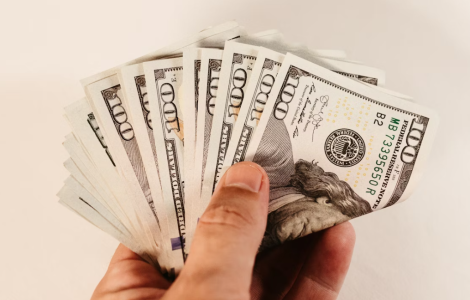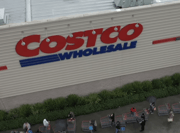You could be getting a $1,500 check soon—find out if your city is on the list and how to claim yours!
- Replies 0
If you’ve been feeling the pinch at the grocery store or watching your utility bills creep up, you’re not alone.
Here’s some good news that might just put a little extra spring in your step: several American cities are rolling out new rounds of “guaranteed income” checks—no strings attached, no hoops to jump through, and in some cases, up to $1,500 a month.
Sounds too good to be true? Here's how cities are putting guaranteed income into action—and what it could mean for you.
Let’s start with the basics.
Guaranteed income (GI) is a simple but powerful idea: give people direct cash payments, regularly, with no requirements about how they spend it.
Unlike traditional welfare, which often comes with a tangle of paperwork, work requirements, and income limits, GI programs trust recipients to know what they need most—whether that’s rent, groceries, childcare, or a little breathing room to get back on their feet.
The concept isn’t new (think of Alaska’s Permanent Fund Dividend, which has been sending annual checks to residents since 1982), but it’s gaining fresh momentum as cities look for creative ways to tackle poverty and economic inequality.

1. Los Angeles, California – “Breathe” Program
LA County’s 'Breathe' program is one of the largest guaranteed income pilots in the country.
More than 1,000 Angelenos are currently receiving up to $1,500 a month, with the goal of helping families escape the cycle of poverty.
The program is focused on low-income residents, and while applications are currently closed, there’s talk of expanding the initiative if results continue to be positive.
2. Chicago, Illinois – “Resilient Communities”
Chicago’s “Resilient Communities” program launched in 2022 and has been sending monthly payments to thousands of residents.
The city is gearing up for another round of payments, so if you live in the Windy City, keep an eye out for updates on eligibility and application windows.
The program targets households hit hardest by the pandemic and aims to provide a financial cushion as the city recovers.
3. Atlanta, Georgia – “In Her Hands”
This innovative program is specifically designed to support Black women in Atlanta, a group that has historically faced higher rates of economic hardship.
“In Her Hands” provides regular cash payments to help recipients cover essentials, invest in their futures, and build financial stability.
It’s a targeted approach that recognizes the unique challenges faced by different communities.
4. Sacramento, California – Creative Growth Fellowship & Family Support
Sacramento is running not one, but two GI programs.
The Creative Growth Fellowship is paying 200 local artists $850 a month for a year, recognizing the vital role the arts play in community life (and how hard the pandemic hit creative workers).
Meanwhile, another program is providing $725 a month to low-income families, helping them weather economic uncertainty and plan for a brighter future.
Read also: Extra cash incoming? Here’s who may qualify for monthly payments of $500
Most programs have a straightforward application process, and once you’re in, you receive regular payments—usually via direct deposit or prepaid debit card.
There are typically no restrictions on how you spend the money, and you don’t have to prove you’re looking for work or jump through other bureaucratic hoops.
Eligibility varies by city and program, but most target low- to moderate-income residents, families with children, or specific groups like artists or Black women.
Some programs are open to all residents of a city, while others use a lottery system to select participants.
By giving people cash, you empower them to make choices that work for their unique situations.
Early results are promising: a study of Newark, New Jersey’s GI program by the University of Pennsylvania found that recipients reported better mental health, less financial stress, and improved quality of life.
Critics worry that GI could discourage people from working or create dependency, but so far, most studies have found the opposite—recipients use the money to stabilize their lives, invest in education or job training, and even start small businesses.
Read also: This single habit is draining your finances—a financial expert explains what to change in 2025
Some advocates are pushing for an even bigger idea: universal basic income (UBI), which would provide regular payments to everyone, regardless of income or employment status.
While UBI is still a long way from reality in the US, these city-level pilots are providing valuable data and sparking a national conversation about what economic security could look like in the 21st century.
How to stay informed (and possibly apply)
If you live in any of the cities mentioned above, check your local government’s official website or news outlets for application windows and requirements.
Spots are often limited and go fast—so it pays to act quickly when they open up.
Read next: Monthly payments with no strings? This program is changing how we think about financial help

Have you or someone you know participated in a guaranteed income program? What would an extra $1,000 a month mean for you or your family? Do you think these programs are a step in the right direction, or do you have concerns about their long-term impact?
Here’s some good news that might just put a little extra spring in your step: several American cities are rolling out new rounds of “guaranteed income” checks—no strings attached, no hoops to jump through, and in some cases, up to $1,500 a month.
Sounds too good to be true? Here's how cities are putting guaranteed income into action—and what it could mean for you.
Let’s start with the basics.
Guaranteed income (GI) is a simple but powerful idea: give people direct cash payments, regularly, with no requirements about how they spend it.
Unlike traditional welfare, which often comes with a tangle of paperwork, work requirements, and income limits, GI programs trust recipients to know what they need most—whether that’s rent, groceries, childcare, or a little breathing room to get back on their feet.
The concept isn’t new (think of Alaska’s Permanent Fund Dividend, which has been sending annual checks to residents since 1982), but it’s gaining fresh momentum as cities look for creative ways to tackle poverty and economic inequality.

Several major cities are leading the charge with new or ongoing GI programs. Image source: Jonathan Borba / Unsplash
Where are these checks going out?
Right now, several major cities are leading the charge with new or ongoing GI programs. Here’s a closer look at four places where residents could soon see a boost in their bank accounts:1. Los Angeles, California – “Breathe” Program
LA County’s 'Breathe' program is one of the largest guaranteed income pilots in the country.
More than 1,000 Angelenos are currently receiving up to $1,500 a month, with the goal of helping families escape the cycle of poverty.
The program is focused on low-income residents, and while applications are currently closed, there’s talk of expanding the initiative if results continue to be positive.
2. Chicago, Illinois – “Resilient Communities”
Chicago’s “Resilient Communities” program launched in 2022 and has been sending monthly payments to thousands of residents.
The city is gearing up for another round of payments, so if you live in the Windy City, keep an eye out for updates on eligibility and application windows.
The program targets households hit hardest by the pandemic and aims to provide a financial cushion as the city recovers.
3. Atlanta, Georgia – “In Her Hands”
This innovative program is specifically designed to support Black women in Atlanta, a group that has historically faced higher rates of economic hardship.
“In Her Hands” provides regular cash payments to help recipients cover essentials, invest in their futures, and build financial stability.
It’s a targeted approach that recognizes the unique challenges faced by different communities.
4. Sacramento, California – Creative Growth Fellowship & Family Support
Sacramento is running not one, but two GI programs.
The Creative Growth Fellowship is paying 200 local artists $850 a month for a year, recognizing the vital role the arts play in community life (and how hard the pandemic hit creative workers).
Meanwhile, another program is providing $725 a month to low-income families, helping them weather economic uncertainty and plan for a brighter future.
Read also: Extra cash incoming? Here’s who may qualify for monthly payments of $500
How do these programs work?
The beauty of guaranteed income is its simplicity.Most programs have a straightforward application process, and once you’re in, you receive regular payments—usually via direct deposit or prepaid debit card.
There are typically no restrictions on how you spend the money, and you don’t have to prove you’re looking for work or jump through other bureaucratic hoops.
Eligibility varies by city and program, but most target low- to moderate-income residents, families with children, or specific groups like artists or Black women.
Some programs are open to all residents of a city, while others use a lottery system to select participants.
Why are cities doing this?
Supporters of guaranteed income say it’s a more humane and effective way to fight poverty.By giving people cash, you empower them to make choices that work for their unique situations.
Early results are promising: a study of Newark, New Jersey’s GI program by the University of Pennsylvania found that recipients reported better mental health, less financial stress, and improved quality of life.
Critics worry that GI could discourage people from working or create dependency, but so far, most studies have found the opposite—recipients use the money to stabilize their lives, invest in education or job training, and even start small businesses.
Read also: This single habit is draining your finances—a financial expert explains what to change in 2025
Some advocates are pushing for an even bigger idea: universal basic income (UBI), which would provide regular payments to everyone, regardless of income or employment status.
While UBI is still a long way from reality in the US, these city-level pilots are providing valuable data and sparking a national conversation about what economic security could look like in the 21st century.
How to stay informed (and possibly apply)
If you live in any of the cities mentioned above, check your local government’s official website or news outlets for application windows and requirements.
Spots are often limited and go fast—so it pays to act quickly when they open up.
Read next: Monthly payments with no strings? This program is changing how we think about financial help
Key Takeaways
- Several US cities—including Los Angeles, Chicago, Atlanta, and Sacramento—are currently running guaranteed income programs, with some residents receiving up to $1,500 in monthly payments.
- These programs generally have fewer conditions than traditional welfare, with most payments being unconditional and not tied to work or drug testing requirements.
- Some schemes are targeted at particular groups, such as Black women in Atlanta and artists in Sacramento, alongside programs for low-income families.
- Early results from these programs, such as in Newark, show improved quality of life metrics for recipients, though critics argue it could discourage people from seeking work.






